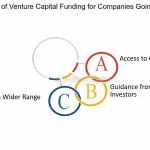What are the pros and cons of going through accelerator programs like TechStars and Y Combinator?

Accelerator programs like TechStars and Y Combinator have become pivotal launchpads for startups, offering mentorship, funding, and access to influential networks. These programs promise to fast-track growth, helping founders refine their ideas, build scalable businesses, and secure investor interest. However, the decision to join an accelerator is not without trade-offs. While the benefits can be transformative, the intense pace, equity dilution, and competitive environment may not suit every entrepreneur. This article explores the pros and cons of participating in such programs, providing insights to help founders determine whether an accelerator aligns with their vision and long-term goals.
- What Are the Pros and Cons of Going Through Accelerator Programs Like TechStars and Y Combinator?
- Exploring the Benefits and Drawbacks of Joining Accelerator Programs Like TechStars and Y Combinator
-
Frequently Asked Questions (FAQs)
- What are the main advantages of joining accelerator programs like TechStars and Y Combinator?
- What are the potential downsides of participating in accelerator programs?
- How do accelerator programs like TechStars and Y Combinator differ from each other?
- Are accelerator programs suitable for all types of startups?
What Are the Pros and Cons of Going Through Accelerator Programs Like TechStars and Y Combinator?
Accelerator programs like TechStars and Y Combinator have become popular pathways for startups to gain traction, funding, and mentorship. However, these programs come with their own set of advantages and disadvantages. Below, we explore the key aspects of participating in such accelerators.
See Also Do Vcs Fund Nonprofits if Not How Else Could They Get Funded From Private Investors
Do Vcs Fund Nonprofits if Not How Else Could They Get Funded From Private Investors1. Access to Funding and Resources
One of the most significant benefits of joining an accelerator program is the access to funding. Programs like Y Combinator and TechStars often provide seed funding in exchange for equity. Additionally, startups gain access to a wide range of resources, including office space, legal advice, and technical tools.
| Pros | Cons |
|---|---|
| Immediate seed funding | Equity dilution |
| Access to resources like office space and tools | Limited control over equity distribution |
2. Mentorship and Networking Opportunities
Accelerator programs offer unparalleled mentorship from industry experts and successful entrepreneurs. This guidance can help startups avoid common pitfalls and accelerate their growth. Moreover, the networking opportunities with investors, alumni, and other startups can open doors to future collaborations and funding.
See Also Can Vc Firms Go Public?
Can Vc Firms Go Public?| Pros | Cons |
|---|---|
| Expert mentorship | Intense competition for attention |
| Valuable networking opportunities | Potential for conflicting advice |
3. Structured Program and Accountability
Accelerators provide a structured program with clear milestones and deadlines, which can help startups stay focused and disciplined. This structure ensures that startups make consistent progress and are held accountable for their goals.
| Pros | Cons |
|---|---|
| Clear milestones and deadlines | Rigid structure may not suit all startups |
| Increased accountability | Pressure to meet program expectations |
4. Brand Credibility and Exposure
Being associated with prestigious accelerators like Y Combinator or TechStars can significantly enhance a startup's brand credibility. This association can attract media attention, customers, and additional investors. However, the intense competition within the program can also be a double-edged sword.
See Also What is an Economic Venture?
What is an Economic Venture?| Pros | Cons |
|---|---|
| Enhanced brand credibility | High expectations from stakeholders |
| Increased media exposure | Pressure to perform under scrutiny |
5. Equity and Long-Term Implications
While accelerators provide funding and resources, they typically require equity in return. This can be a disadvantage for startups that wish to retain full control over their company. Additionally, the long-term implications of giving up equity early on should be carefully considered.
| Pros | Cons |
|---|---|
| Immediate financial support | Loss of equity and control |
| Potential for future funding rounds | Long-term impact on ownership |
Exploring the Benefits and Drawbacks of Joining Accelerator Programs Like TechStars and Y Combinator
1. Access to Expert Mentorship and Networking Opportunities
One of the most significant advantages of joining accelerator programs like TechStars and Y Combinator is the access to expert mentorship and networking opportunities. These programs often connect startups with seasoned entrepreneurs, industry leaders, and investors who can provide invaluable guidance. Mentors can help refine business models, offer strategic advice, and even open doors to potential partnerships. Additionally, the network you build during the program can be a long-term asset, providing support and opportunities well beyond the accelerator's duration. However, the quality of mentorship can vary, and not all mentors may be equally invested in your success, which is something to consider.
2. Funding and Investment Opportunities
Accelerator programs typically offer seed funding in exchange for equity, which can be a crucial lifeline for early-stage startups. Programs like Y Combinator and TechStars are known for their ability to attract follow-on investments from top-tier venture capital firms. This initial funding can help cover operational costs, product development, and market entry. However, the equity stake taken by the accelerator can be a double-edged sword. While it provides immediate financial support, it also means giving up a portion of your company, which could be costly in the long run if your startup becomes highly successful.
3. Structured Learning and Development
Accelerator programs offer a structured curriculum designed to fast-track the growth of startups. This often includes workshops, seminars, and hands-on training in areas like product development, marketing, and scaling operations. The structured environment can be highly beneficial for founders who are new to entrepreneurship, providing them with the tools and knowledge needed to navigate the complexities of running a startup. However, the rigid structure may not suit all startups, especially those that require more flexibility or have already developed a clear path forward.
4. Increased Visibility and Credibility
Being part of a prestigious accelerator program can significantly boost your startup's visibility and credibility. Programs like Y Combinator and TechStars have a strong reputation in the startup ecosystem, and being associated with them can attract media attention, potential customers, and investors. This increased visibility can be a game-changer for startups looking to establish themselves in competitive markets. However, the pressure to perform can be intense, and not all startups may thrive under the spotlight, which could lead to added stress and scrutiny.
5. Time Commitment and Equity Trade-offs
Participating in an accelerator program requires a significant time commitment, often spanning several months. During this period, founders are expected to be fully immersed in the program, which can be challenging if they are also managing other responsibilities. Additionally, the equity trade-off is a critical consideration. While the funding and resources provided by the accelerator can be invaluable, giving up a portion of your company's equity can have long-term implications. It's essential to weigh the immediate benefits against the potential future costs, especially if your startup has high growth potential.
By understanding these pros and cons, founders can make a more informed decision about whether joining an accelerator program like TechStars or Y Combinator is the right move for their startup.
Frequently Asked Questions (FAQs)
What are the main advantages of joining accelerator programs like TechStars and Y Combinator?
Joining accelerator programs such as TechStars and Y Combinator offers several key benefits. First, these programs provide access to mentorship from experienced entrepreneurs, investors, and industry experts who can guide startups through critical challenges. Second, they offer funding opportunities, often in the form of seed investments, which can help startups scale quickly. Third, being part of a prestigious accelerator can significantly enhance a startup's credibility and visibility, making it easier to attract additional investors, partners, and customers. Lastly, the structured environment and deadlines of these programs can help founders stay focused and accelerate their growth trajectory.
What are the potential downsides of participating in accelerator programs?
While accelerator programs have many benefits, there are also some drawbacks to consider. One major concern is the equity stake that accelerators typically require in exchange for funding and resources, which can dilute the founders' ownership. Additionally, the intense pace of these programs may not suit all startups, especially those that need more time to refine their product or business model. There is also the risk of over-reliance on the accelerator's network, which might limit a startup's ability to build independent relationships. Finally, not all startups benefit equally, and some may find that the program's focus does not align with their specific needs or goals.
How do accelerator programs like TechStars and Y Combinator differ from each other?
While both TechStars and Y Combinator are highly regarded accelerator programs, they have distinct characteristics. Y Combinator is known for its larger batches and a strong emphasis on scaling quickly, often focusing on startups with high-growth potential. TechStars, on the other hand, tends to have smaller cohorts and places a greater emphasis on mentorship and community building. Additionally, Y Combinator's demo day is a major event in the startup world, while TechStars often highlights its localized networks and partnerships. The choice between the two depends on a startup's specific needs and priorities.
Are accelerator programs suitable for all types of startups?
Accelerator programs are not a one-size-fits-all solution. They are most beneficial for early-stage startups that are looking to validate their business model, secure initial funding, and build a strong network. However, startups that already have a clear product-market fit or those in industries with slower growth cycles may not find as much value in these programs. Additionally, founders who prefer to maintain full control over their company's direction and equity might find the terms of accelerators less appealing. It's important for startups to carefully evaluate whether the program's structure and resources align with their long-term goals.
Leave a Reply

Our Recommended Articles